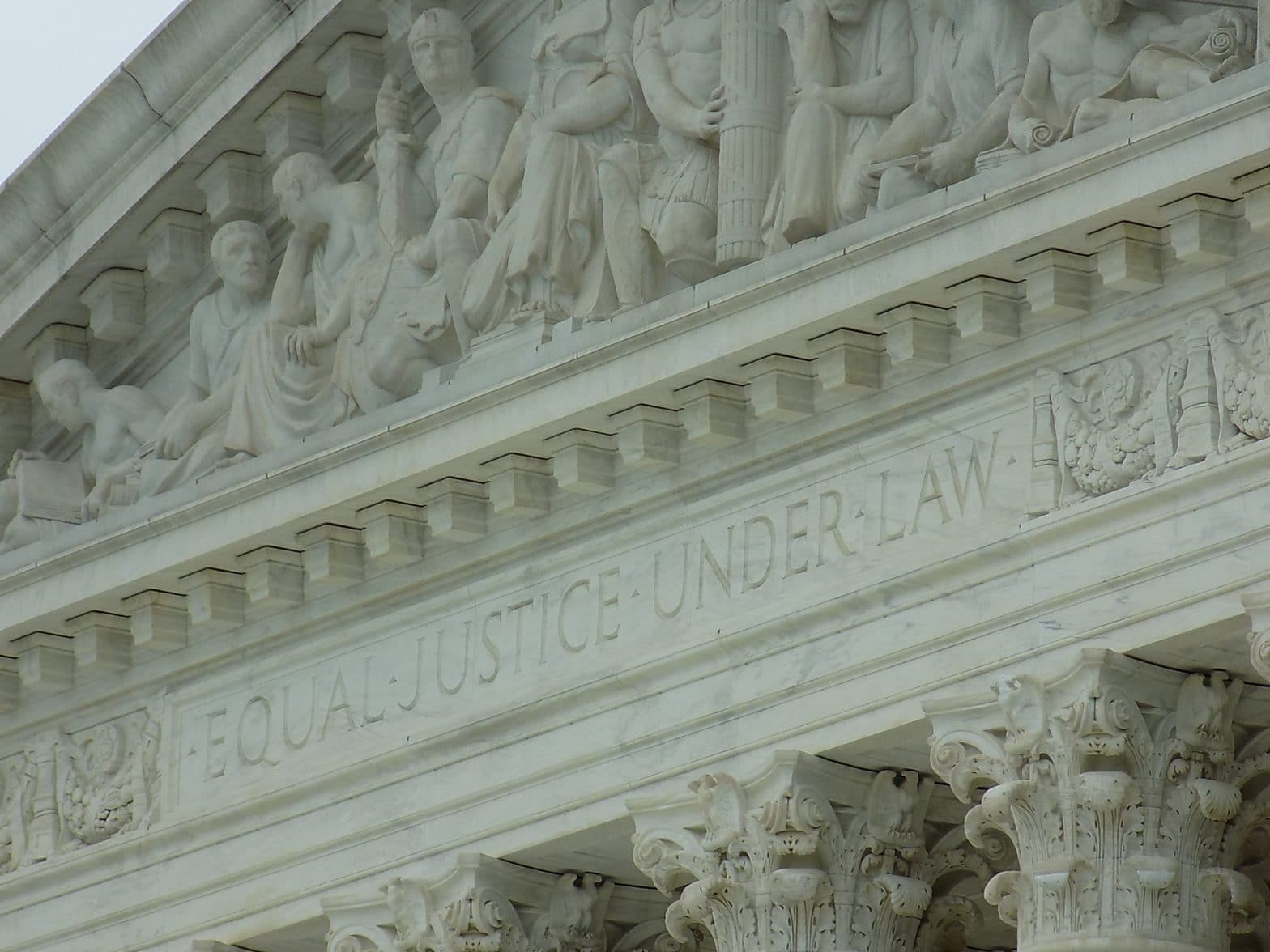Constitution Does Not Bar Issuance of State Criminal Subpoena to Sitting President

WASHINGTON – The U.S. Supreme Court ruled Thursday that neither Article II of the Constitution nor the Supremacy Clause categorically preclude or require a heightened standard for the issuance of a state criminal subpoena to a sitting president.
The 7-2 ruling by the high court in the case Trump v. Vance, written by Chief Justice John Roberts is a blow to President Donald Trump, who had fought not to disclose his tax returns and other financial information to Manhattan district attorney Cyrus Vance, Jr.
But in a second, related, 7-2 ruling, also written by the chief justice, the court held that three congressional committees exceeded their congressional authority when they subpoenaed Trump’s financial records in a separate investigation.
Though Roberts rejected the “demanding standards” proposed by the president and Solicitor General Noel Francisco, he wrote the House’s arguments for the release of the documents failed “to take adequate account of the significant separation of powers concerns raised by congressional subpoenas for the president’s information.”
The justices vacated the decision in the case Trump v. Mazars USA, and sent the case back to the lower courts to more fully take into account all the possible separation of powers concerns.
Though the Mazars decision is more of a win for the president, it is far from the end of the case, which is now back in the hands of the 2nd U.S. Circuit Courts of Appeals and the U.S. Court of Appeals for District of Columbia.
That means at some point, the congressional subpoenas may still be found to be enforceable.
Trump v. Vance, stems from the Manhattan district attorney seeking eight years of business and personal tax records as part of an investigation into the role Trump and the Trump Organization played in hush-money payments made to Stormy Daniels and another woman who said she had an affair with Trump prior to the 2016 election.
Both Trump and his company reimbursed the president’s former lawyer and fixer, Michael Cohen, for payments made to the pornographic film actress Stormy Daniels, who claimed that she had an affair several years ago with the future president.
Cohen was also involved in payments to Karen McDougal, a Playboy model who also claimed she had a relationship with Trump. The president has denied the relationships.
The president’s attorney in this case, Jay Sekulow, argued Trump is absolutely immune from criminal investigations while in office, even though the high court unanimously rejected such immunity in Clinton v. Jones on pre-presidential matters.
Solicitor General Noel Francisco insisted that Vance have “special needs” for the requested documents, and both he and Sekulow stressed the fact a ruling against Trump would potentially make the president vulnerable to politically-motivated harassment from the nation’s 2,300 state prosecutors.
But Vance argued the Supreme Court’s ruling in United States v. Nixon, which required the president to turn over tapes of his Oval Office conversations, effectively voided Trump’s defense.
“This court has long recognized that a sitting president may be subject to a subpoena in a criminal proceeding,” Vance said of the 1974 decision.
The Justice Department, which presented arguments in support of Trump’s attorneys, said even if Vance was correct, his subpoenas in this case do not satisfy the standards that apply when information is sought about a sitting president’s private conduct.
Thursday’s pair of rulings on Trump’s financial records was not entirely a surprise. Over the course of more than three hours of oral arguments conducted over the telephone due to the coronavirus outbreak, a majority of justices appeared skeptical of Trump’s argument in the Vance case, but seemed more receptive to Trump’s argument in the case involving the House committees.
“Rejecting a heightened need standard does not leave presidents with ‘no real protection.’ To start, a president may avail himself of the same protections available to every other citizen,” Roberts wrote in Vance.
He also noted presidents “may challenge specific subpoenas as impeding their Article II functions.”
“Given these safeguards and the Court’s precedents, we cannot conclude that absolute immunity is necessary or appropriate under Article II or the Supremacy Clause. Our dissenting colleagues agree,” the chief justice added.
House Majority Leader Steny Hoyer, D-Md., said Thursday’s Supreme Court rulings “reaffirmed that the President of the United States is not above the law but subject to it, that state prosecutors can seek and obtain his financial records to check for wrongdoing, and that Congress’s oversight authority is a broad and essential legislative power under the Constitution.
“This is a victory for the rule of law and for the principle that those we elect to lead us must be held accountable,” Hoyer said. “While the Supreme Court returned the Mazars case to the lower courts, and as prosecutors in New York continue to investigate the President’s actions, Congress will continue to do its job under our Constitution by conducting oversight and holding President Trump accountable for his efforts to obstruct the exercise of justice and hide important truths from those he seeks to govern.”
House Speaker Nancy Pelosi also responded favorably, saying, “A careful reading of the Supreme Court rulings related to the President’s financial records is not good news for President Trump.
“The Court has reaffirmed the Congress’s authority to conduct oversight on behalf of the American people, as it asks for further information from the Congress,” the Speaker said. “Congress’s constitutional responsibility to uncover the truth continues, specifically related to the President’s Russia connection that he is hiding.
“The Congress will continue to conduct oversight For The People, upholding the separation of powers that is the genius of our Constitution. We will continue to press our case in the lower courts,” Pelosi said.























